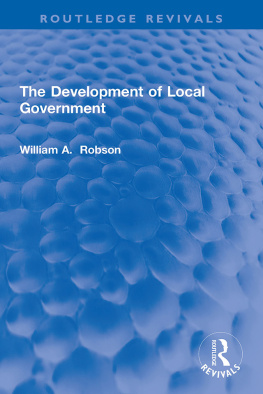Routledge Revivals
Man and the Social Sciences
One of the most significant movements in the world of learning in the twentieth century was the rise and development of the social sciences. However, few attempts have been made to see how far social scientists have travelled on the road to studying and understanding human society. First published in 1972, the lectures reprinted in this book aim to trace the development of the social sciences during the twentieth century and to show the role of the London School of Economics and Political Science in this development since it was founded in 1895.
Each of the very distinguished lecturers was asked to take the larger view, to be critical where necessary, to treat his subject in the context of the world of learning. The result is a survey of exceptional interest in which the growth of the social sciences is analysed from a number of contrasting viewpoints, each of which ranges widely and often with provocative brilliance over themes that are of general concern.
The introduction by Professor W.A. Robson, which was not part of the original lecture series, is in itself a critical assessment of the field that will be read with close attention.
Man and the Social Sciences
Twelve lectures delivered at the London School of Economics and Political Science tracing the development of the social sciences during the present century
Edited by
William A. Robson
First published in 1972
by George Allen & Unwin Ltd
This edition first published in 2011 by Routledge
2 Park Square, Milton Park, Abingdon, Oxon, OX14 4RN
Simultaneously published in the USA and Canada
by Routledge
711 Third Avenue, New York, NY 10017
Routledge is an imprint of the Taylor & Francis Group, an informa business
1972 The London School of Economics and Political Science
All rights reserved. No part of this book may be reprinted or reproduced or utilised in any form or by any electronic, mechanical, or other means, now known or hereafter invented, including photocopying and recording, or in any information storage or retrieval system, without permission in writing from the publishers.
Publishers Note
The publisher has gone to great lengths to ensure the quality of this reprint but points out that some imperfections in the original copies may be apparent.
Disclaimer
The publisher has made every effort to trace copyright holders and welcomes correspondence from those they have been unable to contact.
A Library of Congress record exists under ISBN: 0043000371
ISBN 13: 978-0-415-67937-4 (hbk)
MAN AND THE SOCIAL SCIENCES
TWELVE LECTURES
delivered at the Lonwdon School of
Economics and Political Science
tracing the development of
the social sciences during
the present century
EDITED BY
WILLIAM A. ROBSON
Professor Emeritus of Public Administration
London School of Economics
and Political Science
LONDON SCHOOL OF ECONOMICS
AND POLITICAL SCIENCE
________
________
GEORGE ALLEN & UNWIN LTD
LONDON
1972
The London School of Economics
and Political Science
All rights reserved.
No part of this publication may be reproduced, stored in a retrieval system, or transmitted, in any form or by any means, electronic, mechanical, photocopying, recording or otherwise, without the prior permission of the copyright owner.
Published by
The London School of Economics
and Political Science,
Houghton Street, Aldwych
London, WC2A 2AB
Sold and distributed by
George Allen & Unwin Ltd.
40 Museum Street, London,
WCIA ILU
ISBN
0 04 30037 1 (Cloth)
0 04 30042 8 (Paper)
Designed by Bernard Crossland
PRINTED IN GREAT BRITAIN
BY HAZELL WATSON AND VINEY LTD
AYLESBURY, BUCKS
CONTENTS
WILLIAM ROBSON
HARRY G. JOHNSON
MICHAEL M. POSTAN
DONALD G. M ac RAE
PETER J. O. SELF
G. L. GOODWIN
R. A. PARKER
MAURICE G. KENDALL
EDMUND LEACH
JOHN W. N. WATKINS
OTTO KAHN-FREUND
M. J. WISE
B. C. ROBERTS
WILLIAM A. ROBSON
Ph.D., LL.M., B.Sc. (Econ.) Lond.
Professor Emeritus of Public Administration
The London School of Economics
and Political Science
Barrister-at-law of Lincolns Inn. Reader in Administrative Law at the L.S.E. 193446. Former President of the International Political Science Association. Vice-President of the Political Studies Association, and of the Royal Institute of Public Administration. Has received honorary degrees from the Universities of Lille, Grenoble, Paris, Algiers, Durham, Manchester, and Birmingham. Honorary Fellow, L.S.E. Author of many books and articles in learned publications. Founder and Joint Editor of The Political Quarterly. Has advised the Governments of Lebanon, Nigeria,
Turkey, and Tokyo.
INTRODUCTION
One of the most significant movements in the world of learning in the twentieth century has been the growth of the social sciences. They have outstripped the older arts subjects in many respects and now rival the physical and natural sciences in their appeal. But despite a vast expansion of teaching and research, an immense increase in the numbers of students and staff devoting themselves to these subjects, and a veritable torrent of publications of all kinds, attempts are seldom made to trace and evaluate the developments which have taken place during a specified period. An opportunity to carry out an exercise of this kind occurred in May 1971, when Sir Walter Adams, Director of the London School of Economics and Political Science, invited me to organize a course of public lectures tracing the development of the social sciences in the twentieth century and the part which the School had or had not played in that development This was the genesis of the lectures published in this book. They were delivered in the Michael-mas and Lent terms of the 19712 session and attracted large audiences both from inside and outside the University.
I
The social sciences can most easily and accurately be defined as the disciplines devoted to the study of man in society. Some people of a pedantic turn of mind object to the use of the word science in this connection on the ground that such studies do not have the same degree of accuracy, certainty, universality, or ability to formulate general laws as physics or chemistry. This objection is based on a misunderstanding of the word science, which is derived from the Latin scientia. The word signified knowledge, and according to the Shorter Oxford English Dictionary, its meanings include knowledge acquired by study; acquaintance with or mastery of any department of learning; or a particular branch of knowledge or study, a recognized department of learning. The restricted meaning given to the word as referring only to the exact, experimental, natural, or physical sciences is quite modern and has no special claim to validity.
Can we be equally confident about the use of the word discipline? The term suggests a rigorous mode of thought, a specialized language, and a common set of assumptions shared by those claiming to understand or exercise the discipline. Economics is clearly a discipline judged by these tests; and so too are law and mathematical statistics. Political science, which usually includes political theory, the history of political thought, government, political parties, groups and associations, elections and public opinion, is more dispersed, less integrated, and lacks a technical vocabulary. But political science is recognized today in every British university (with the possible exception of Cambridge) as a major social science. Sociology is even more diffused and complex, and is divided into a large number of sectional studies; and for the most part it uses the language of everyday speech. After forty years of neglect and hostility in almost all British universities except London, sociology has recently been rising rapidly in the firmament of higher education, and seems now to be regarded as the example




